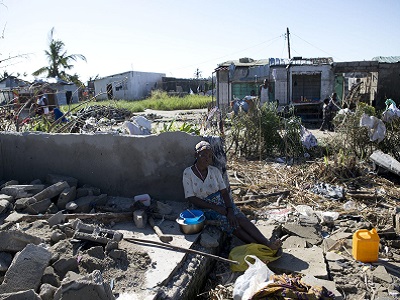cover image: © UNICEF/UN0291856/Prinsloo
The Post Disaster Needs Assessment, PDNA, is a joint product of the European Union, the World Bank and the United Nations Development Group, drawn up as an effort to harmonize post crises assessments, including those associated to disasters triggered by natural hazards.
Learning objectives
At the end of this course, you will be able to:
- Understand the PDNA methodology and apply it to one key sector or cross-cutting issue.
- Conduct the cost estimates of damage, loss and recovery needs for each sector of analysis.
- Understand the importance of conducting the human and macroeconomic impact assessment.
- Learn how the PDNA informs the Disaster Recovery Framework, DRF.
Audience
This course is suitable for staff of any level of seniority, with general background on Disaster Risk Management and some experience in post-disaster recovery, either assessments, planning or actual implementation. External participants interested in learning the PDNA methodology will need to be sponsored by one of the UN Agencies, Funds or Programs, the WB or the EU.
Length
Each one of the modules of this self-paced course will take you between 30 to 45 min to be completed.
Methodology and Structure
This course is composed of four self-paced animated modules, including various examples and activities. A fifth module allows the learner to select one sector to be analyzed in detail, based on a fictitious case study.
This course is composed of five modules:
- PDNA overview
- Context, baseline information, identification of the disaster effects and costing the disaster effects (concepts of Damage and Loss)
- Human Impact and Macroeconomic Impact
- Recovery needs and it prioritization, recovery strategy and transit to the Disaster Recovery Framework
- Application of the PDNA to 6 selected sectors, learners will be to able to chose one of the sectors to complete the training sessions.
Note* before completing a module, learners will be prompted to take a short evaluation before proceeding to the next module.
Contact détails
Jeannette Fernandez Castro Jeannette.fernandez.castro@undp.org
Antony Spalton aspalton@unicef.org
Hrachya Sargsyan hsargsyan@unicef.org
